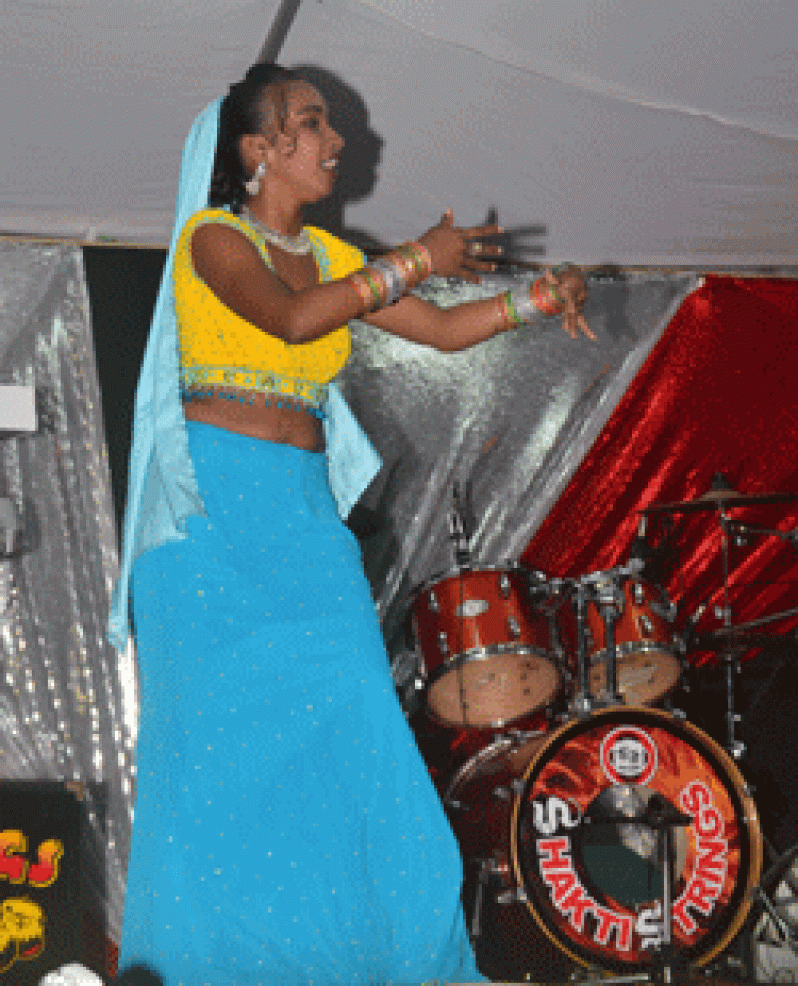PAULINE Carole Melville is a distinguished Guyanese writer who now lives in the United Kingdom (UK) but would ever so often travel home to her native Guyana.
 Pauline loves Guyana, particularly its landscape, which she says brings her some sort of “healing.”
Pauline loves Guyana, particularly its landscape, which she says brings her some sort of “healing.”
She was in Guyana recently to deliver this year’s Edgar Mittelholzer Memorial Lecture, which she delivered last Thursday at the Umana Yana in Kingston, Georgetown.
Now 64, the accomplished Pauline Melville told reporters earlier this week that she rarely talks about herself and background, because she believes that this could distract people from her work.
Nevertheless, she answered a few questions from the media when she went to pay a courtesy call on Culture, Youth and Sport Minister Dr Frank Anthony, last Wednesday at his office on Main Street.
Explaining how she started her writing career, Melville said that while working at a theatre in England, she acted in films and plays. She believes she was chosen because of her quite English looks.
“[But] I am Guyanese, and I couldn’t use my own background unless I was to write about it. So that’s what took me from the theatre into literature.
“I was working in Jamaica and something happened in England that was a matter of social injustice and racism, and that actually sparked me off to write a story about it. And I then just began to write about my own memories about childhood and a whole range of things. I was very fortunate that someone read my story and said, ‘if you write like this, I would publish a book of your stories’,” she recalled.
Melville said she chose this profession because she felt she had something to say. “And all writers, without sounding too pompous about it, find themselves wanting to illuminate the human condition in whatever way, maybe socially or in terms of spirituality.”
A GOOD WRITER Asked what makes a good writer, Melville responded: “An understanding of humanity, and people, and what they like; what drives them and what motivates them; but also an understanding of history, their cultural background.
Asked what makes a good writer, Melville responded: “An understanding of humanity, and people, and what they like; what drives them and what motivates them; but also an understanding of history, their cultural background.
“People always think that writers know everything. We don’t. We are probably just as inquiring and curious as you. The other thing is that writers don’t always know what they are writing. It doesn’t always come from the rational part of the brain, and sometimes I have written things that are saying the opposite of what I was going to say.
“We are not completely in control of what we are doing. The other thing is that the reader writes half of the book. Whatever I put on the table, you will bring your life to it, see it through your eyes and interpretations.”
GUYANA’S LANDSCAPE
Melville said she always feels very happy as soon as she touches down in this country. To be humourous, she said one of the things that bring her back here so often is “the heat”.
“I have family here, many old friends. I’m fascinated by the politics of Guyana. But one of the most profound things is the landscape.”
She recalled how, on one occasion, she had written a story about how she was attacked and nearly murdered in England, and how immediately after this incident she returned to Guyana. “I took a boat and went down to Essequibo…to visit relatives in the Rupununi. The landscape had some kind of healing effect on me.”
BOOKS
According to Wikipedia (An online encyclopedia), Melville’s first book, Shape-Shifter (1990), a collection of short stories, won the 1991 Commonwealth Writers’ Prize (Overall Winner, Best First Book), and the Guardian Fiction Prize.
The book consists of a number of short stories dealing with post-colonial life in the Caribbean, particularly in Guyana, as well as of some stories set in London.
Many of her characters — most of them displaced people from former colonies struggling to come to terms with a new life in Britain — attempt to find an identity, to reconcile their past, and to escape from the restlessness hinted at in the title.
Her first novel, The Ventriloquist’s Tale (1997), won the Whitbread First Novel Award and was shortlisted for the Orange Prize for Fiction. In the book, according to Wikipedia, Melville explores the nature of fiction and storytelling, and writes about the impact of European colonisers on Guyanese Amerindians through the story of a brother and sister.
Her most recent collection of stories is ‘The Migration of Ghosts’ (1998), a book of complex layered tales of physical and emotional displacement.
In films, she played the part of Dawn in Mona Lisa, and Dora in The Long Good Friday, among others. She also appeared in television programmes as Vyvyan’s mother in the BBC television comedy series ‘The Young Ones’, and as Yvonne in ‘Girls On Top’, among others.



.jpg)








